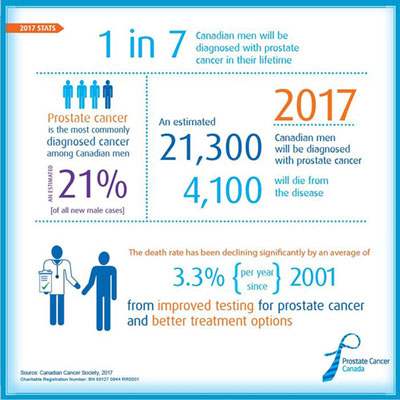 Have you recently been diagnosed with prostate cancer? You are not alone and we can help. Prostate cancer has a wide range of treatment options, especially if you are diagnosed early. You usually have time to explore all your options.
Have you recently been diagnosed with prostate cancer? You are not alone and we can help. Prostate cancer has a wide range of treatment options, especially if you are diagnosed early. You usually have time to explore all your options.
Consult one of the general references under Reading or one of the websites in the right sidebar to understand the general terms and the range of treatment options that might be available to you. In particular, an organization called Zero has created a downloadable Guide for Newly Diagnosed Prostate Cancer Patients. Access it by clicking here.
If you have been diagnosed with prostate cancer, you’ve already had a biopsy which was prompted by an increasing PSA and/or an abnormal DRE (digital rectal exam). The biopsy report normally includes a Gleason Score and possibly a Stage. To aid in further assessing your situation, it may be recommended that you have additional tests. All test results will be very helpful to you when making your treatment decision. You should also ask for copies of each report for your personal file.
We have prepared some suggestions for dealing with our health care system called Making a decision.
Also, Erin Anderssen in the Globe and Mail, Saturday, December 9, 2006 offers the following tips:
Prepare for appointments. Bring someone along to keep notes. Buy a tape recorder to use when you meet your doctor. [Ed. note: Before using a recorder, please ask if you are allowed to record the interview.] Make a list of questions, and ask the most important ones first in case the doctor gets called away.
‘Follow the paper.’ Ask for copies of all your test results. Find out where they will be sent and when you can expect to get them. If you don’t hear back on time, call the office and find out their status. Breast-cancer survivor Virginia Yule, 56, puts it this way: “If you were having a refrigerator delivered on Tuesday, and it didn’t come at 11, by 12 you would be on the phone to see where it was. Papers do get lost . . . and if you don’t follow up on it yourself, you are partially responsible for it not being found.”
Keep in touch. Contact the offices that schedule surgery, MRIs and CT scans, and make it clear you are willing to come in if there are cancellations. Check into options to have surgery earlier at clinics outside major centres.
Keep a journal. Note your symptoms, including the food you eat and any side effects you experience. Jot down any questions you may want to ask your doctors. Organize those questions for your appointment, and bring your journal so you can be specific.
Brenda Binder Parsons, a 44-year-old mother in Barrie, Ont., who has been struggling with breast cancer for more than a decade, recommends organizing a binder with a section for each doctor you see, and to keep your test results catalogued. “Summarize your health history into a one-page written document,” she suggests, “so you don’t have to repeat your whole story every time you seek another opinion or see a specialist.”
Educate yourself. Use the Internet. Talk to health-care professionals and get help from staff at the hospital library. Ask your doctor for recommended websites. Contact cancer organizations that have information services. At Wellspring, a breast-cancer support organization based in Toronto, women across Canada can be faxed or mailed a package of information about their specific cancer.
“While it may be overwhelming at the beginning,” says Angela Tomsic, 60, of Unionville, Ont., who is living with multiple myeloma, “you must learn to be your own best advocate.”
Check your sources. The most accurate information will be found on websites from the cancer agencies and hospitals in Canada and the United States, and well as major non-profit organizations such as the Canadian Cancer Society. Learn about your particular kind of cancer so you know which clinical trials, treatment options and personal experiences apply to your case.
Glenda Rutka, a 50-year-old-Burlington, Ont., woman with ovarian cancer, warns: “Too much information can be a bad thing. It is important to understand your disease . . . [but] you don’t want to mentally exhaust yourself in the process.”
Use contacts. Reach out to friends, family, medical staff and professional contacts to help you navigate the system. Find support groups. The Cancer Society, for example, operates a telephone support program that connects cancer patients with people who have also faced the disease. Says Spike Harris, 46, an ovarian-cancer survivor in Vancouver: “Be clear about what you want, even if it changes by the day, or by the hour. Be authentic with people.”
Get second opinions. Build a relationship with a pharmacist, who can give advice on how best to take your medications and what might help you cope with side effects. And find a doctor who takes the time to answer your questions and whose advice you trust. If you don’t like your oncologist, ask for someone else. If your doctor is too busy, ask him who can give you more information.
The last word. From Yvonne Merchant, 61, living with cancer in Calgary: “Make sure you ask a lot of questions, and never feel stupid doing so.”

